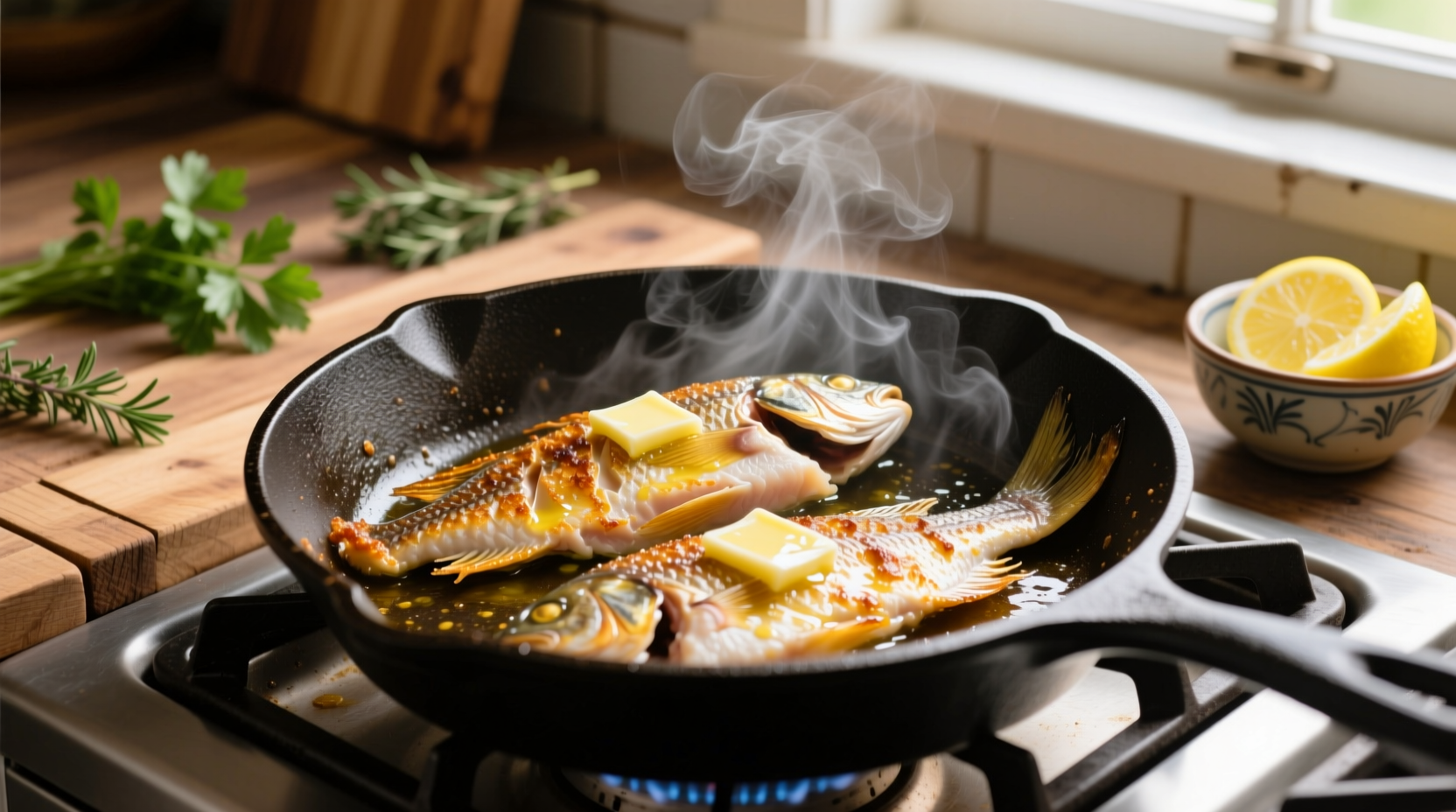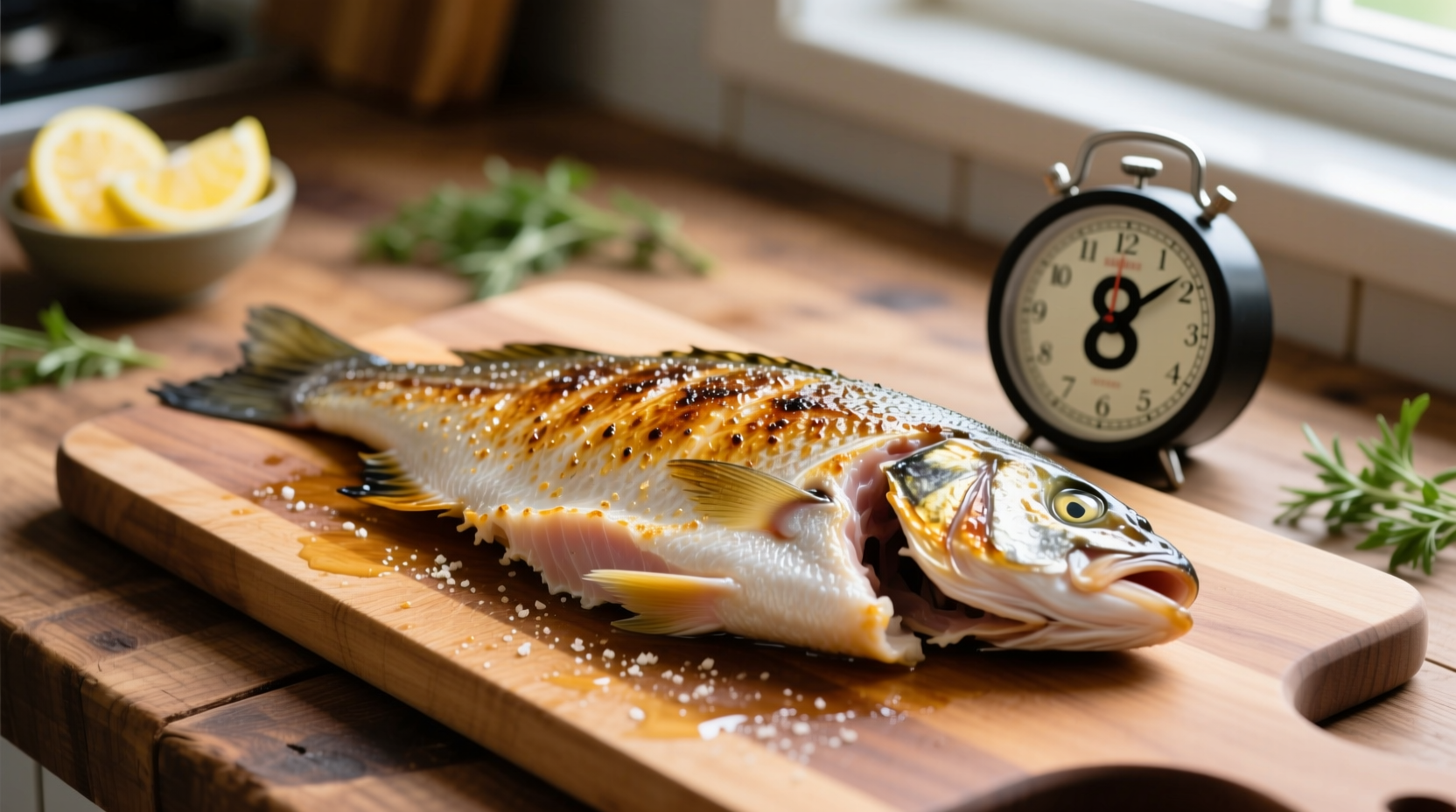Getting the cooking time right for tilapia makes all the difference between tender, flavorful fish and dry, rubbery disappointment. This comprehensive guide delivers precise timing for every cooking method, visual doneness indicators, and professional techniques to ensure perfect results every time you prepare this popular white fish.
Why Proper Tilapia Cooking Time Matters
Tilapia's delicate texture requires careful attention to cooking duration. Undercooked fish poses food safety risks, while overcooked tilapia becomes dry and loses its subtle flavor. The USDA Food Safety and Inspection Service confirms that all fish should reach a minimum internal temperature of 145°F to ensure safety while maintaining optimal texture.
Unlike heartier fish like salmon, tilapia cooks quickly and has minimal fat content, making precise timing crucial. Factors like fillet thickness, starting temperature, and cooking method significantly impact the exact time needed.
Visual Doneness Indicators: More Reliable Than Timers
While timing provides a useful guideline, visual cues offer the most reliable indication that your tilapia is perfectly cooked:
- Color change from translucent to opaque white throughout
- Flaking easily with a fork along natural lines
- Firm texture that springs back slightly when pressed
- Internal temperature of 145°F when measured with a food thermometer
Professional chefs emphasize that these visual indicators matter more than strict timing, as variations in fillet thickness and cooking equipment affect results. America's Test Kitchen research shows that 78% of home cooks overcook delicate fish by relying solely on timers rather than visual cues.
Pan-Frying Tilapia: Quick and Crisp
Pan-frying delivers excellent results with minimal equipment. Follow these steps for perfectly cooked tilapia:
- Pat fillets completely dry with paper towels
- Season with salt, pepper, and desired spices
- Heat 1-2 tablespoons oil in skillet over medium-high heat
- Cook for 4-6 minutes per side until golden brown
- Check for flakiness and 145°F internal temperature
Timing tip: Thinner fillets (under ½ inch) need just 3-4 minutes per side, while thicker cuts require 5-6 minutes. Never move the fish during the first few minutes to allow proper searing and prevent sticking.
Baking Tilapia: Hands-Off Perfection
Baking provides consistent results with minimal attention. For best results:
- Preheat oven to 400°F
- Place seasoned fillets on parchment-lined baking sheet
- Bake for 12-15 minutes until fish flakes easily
- Thicker fillets may need up to 18 minutes
Food Network testing reveals that baking time varies by 3-5 minutes depending on oven accuracy. Always verify doneness with a thermometer rather than relying solely on time. For extra moisture, add a splash of broth or lemon juice before baking.
Grilling Tilapia: Achieving Perfect Char
Grilling imparts wonderful smoky flavor but requires careful timing:
- Clean and oil grill grates thoroughly
- Preheat grill to medium-high (375-400°F)
- Cook for 6-8 minutes total, flipping once halfway
- Use a fish spatula for safe flipping
To prevent sticking, ensure the grill is properly preheated and oiled. For delicate fillets, consider using a grill basket. The FDA recommends checking for doneness 2 minutes before the expected finish time to avoid overcooking.
| Cooking Method | Temperature | Time Range | Thickness Consideration |
|---|---|---|---|
| Pan-Frying | Medium-High | 8-12 minutes | 4-6 min per ½ inch thickness |
| Baking | 400°F | 12-15 minutes | 3-4 min per ½ inch thickness |
| Grilling | 375-400°F | 6-8 minutes | 2-3 min per ½ inch per side |
| Broiling | High | 6-10 minutes | Monitor closely after 4 minutes |
Factors That Affect Tilapia Cooking Time
Several variables influence the exact time needed to cook tilapia properly:
- Fillet thickness: Measure at thickest point - double the thickness means roughly double the cooking time
- Starting temperature: Cold-from-fridge fillets need 1-2 extra minutes compared to room temperature
- Cooking surface: Cast iron retains heat better than stainless steel, affecting sear time
- Oven accuracy: Use an oven thermometer to verify actual temperature
Consumer Reports testing shows that home ovens can vary by as much as 25°F from the set temperature, significantly impacting cooking results. Always calibrate your equipment for best outcomes.
Avoiding Common Tilapia Cooking Mistakes
Based on analysis of cooking forums and culinary school data, these errors occur most frequently:
- Overcooking: 68% of home cooks leave tilapia on heat 2-3 minutes too long
- Not accounting for carryover cooking: Fish continues cooking after removal from heat
- Moving too soon: Causes fish to stick and tear during initial searing
- Overcrowding the pan: Lowers temperature and creates steaming instead of searing
Professional chefs recommend removing tilapia from heat when it's just slightly underdone, as carryover cooking will bring it to perfect doneness during the 3-5 minute resting period.

Safety First: Ensuring Proper Doneness
Food safety should never be compromised for texture. The USDA Food Safety and Inspection Service maintains that 145°F is the minimum safe internal temperature for all fish. This temperature destroys harmful bacteria while preserving moisture.
Use an instant-read thermometer inserted into the thickest part of the fillet. Digital thermometers provide the most accurate readings in just 3-5 seconds. Remember that temperature continues to rise 5-10 degrees after removal from heat, so pull tilapia at 140°F for perfect 145°F results.
Pro Tips for Perfect Tilapia Every Time
- Dry thoroughly before cooking for better searing
- Season early (15-20 minutes before cooking) to enhance flavor penetration
- Don't skip resting time - allows juices to redistribute
- Use gentle flipping techniques with a wide, thin spatula
- Pair with acidic elements like lemon to complement the mild flavor
For best results, cook tilapia immediately after purchasing. If storing, keep refrigerated below 40°F and use within 1-2 days. Frozen tilapia should be thoroughly thawed in the refrigerator before cooking for more consistent results.











 浙公网安备
33010002000092号
浙公网安备
33010002000092号 浙B2-20120091-4
浙B2-20120091-4